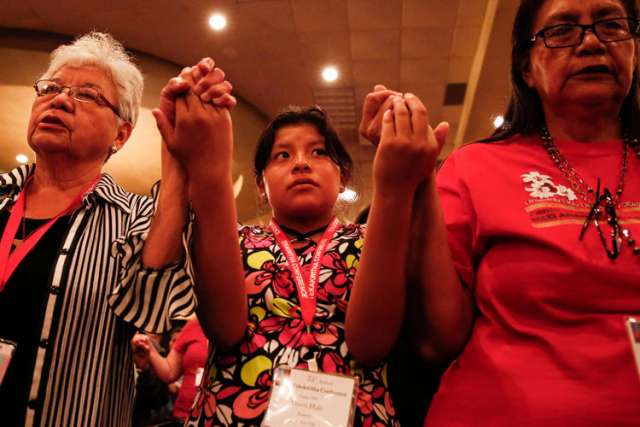In the proper context, inquiries can serve a vital public purpose by commissioning investigators to uncover information and expose wrongdoing. A good example is the recent inquiry into the Lac-Mégantic train derailment. It found a long list of failings that hopefully will propel industry and government to act and improve public safety.
But an inquiry into violence against native women is unlikely to reveal any new truths. There exists already tens of thousands of pages from reports and studies, including the 1996 Royal Commission on Aboriginal Peoples, that itemize in tragic detail how native women and teens fare worse than the general population in virtually every measure of well-being — from poverty, education, health and employment, to abuse, addiction and imprisonment. The Truth and Reconciliation Commission, which concluded formal hearings last March, heard from thousands of men and women about the catastrophic harm inflicted on native communities by the horrors children encountered for decades at residential schools. Native issues are broad, serious and already well documented.
Most recently, last May the RCMP released a report into more than 1,000 incidents of murdered and missing aboriginal women. It found that although aboriginal women comprise 4.3 per cent of the population, they represent 16 per cent of Canada’s female murder victims and 11.3 per cent of missing women. The findings are alarming but they failed to ignite a public debate until the body of a 15-year-old teen was pulled last month from the Red River near Winnipeg. The murder of Tina Fontaine gave fresh wind to the RCMP report and together the two events prompted demands for a federal inquiry.
People are justifiably angry. But the killings are just one symptom of a deeper problem that goes beyond violence. The challenge facing Canada is to confront decades of shameful treatment of native peoples and reverse the entrenched socio-economic disparity, the fundamental injustice, that exists because of it. That doesn’t require another inquiry. It requires collaboration and decisive action from government and native leaders.
At his retirement last October, former Winnipeg Archbishop James Weisgerber called reconciliation with native peoples the most serious issue facing Canada. That was before the RCMP report and before Fontaine was killed. But he lamented back then, “I don’t think we’re taking it that seriously.”
It’s time Canada’s leaders finally got serious. No more inquiries. Act.


